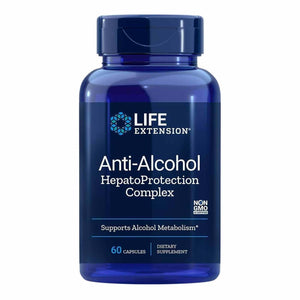Is Stout Good For You?


Related products
Originating from the British Isles in the 1700s, Stout is a distinctive dark beer recognized for its rich and robust flavor profile. The unique brew process involves combining roasted malt or barley, hops, water, and yeast, which results in a beverage that carries hints of coffee or chocolate—flavor notes that make it distinctively different from other beer types.
The features of this thick yet flavorful brew often spark interest among health-conscious individuals due to multiple scientific studies associating moderate consumption of stout with certain health benefits. Stout contains several nutrients including antioxidants known as flavonoids that mainly come from its primary ingredient - barley; these components are associated with heart-healthy properties by aiding in reducing inflammation and preventing blood clotting.
Furthermore, some research suggests that dark beers like stout might aid digestion due their high fiber content compared to lighter ones such as lagers or blondes. Other potential advantages include boosting bone density owing to silicon presence within the beverage helping increase calcium deposits – an essential aspect in maintaining robust bones.
Despite stout’s compelling attributes however, moderation remains key when consuming alcoholic beverages because excess intake bears negative impacts on physical condition and overall wellness. Overindulgence leads not only towards immediate consequences like poor decision-making & reflex impairment but also long-term problems encompassing liver damage along chronic diseases plus addiction risks too.
While many grocery stores sell assorted brands of stouts locally depending upon regional distribution agreements they've got under belt alongside liquor shops specifically dedicated towards alcohol sales where consumers find imported versions rarely stocked elsewhere.
What is Stout?

Stout is a type of beer renowned for its dark, often almost black color. Originally from the British Isles in the 18th century, it stands apart from other beers with its strong and robust flavors evoking elements of coffee and chocolate.
The distinct characteristic look stems primarily from being brewed using roasted malt or barley that gives it this deep hue alongside unique taste notes. Hence, stout presents forth an intriguing blend of richness paired with a hint of bitterness which lingers; all these attributes bestow upon Stout - a cherished standing amid various alcohol options available globally.
There exists multiple palatable iterations including dry Irish stouts like Guinness known worldwide to sweet milk stouts infused with lactose for added creaminess down to oatmeal variants incorporating oats as part assembling process ensuring smoothness even Imperial Stouts boasting elevated levels ABV (Alcohol By Volume) compared regular versions out there brewing market today altogether proving presence dynamic range choices catering distinctive preferences enjoyed consumers regardless where they are situated around world.
Is Stout Good For You?
Stout indeed carries certain health benefits when consumed responsibly. Research highlights that moderate intake might offer heart-health advantages due to the presence of antioxidants like flavonoids derived from barley. These elements potentially help reduce inflammation and avert blood clot formation, fostering better cardiovascular well-being.
Another advantageous feature is Stout's fiber content being higher than other beer types - an attribute contributing to improved digestive processes and assisting in weight regulation by offering a satiating effect thus discouraging overeating.
Lastly, Stout contains silicon which assists with boosting bone density through facilitating increased calcium deposits—an essential process for maintaining sturdy bones. Regardless of these potential benefits though, moderation remains vital as excessive alcohol consumption leads to adverse impacts on overall wellness.
Potential Side Effects
Excessive consumption of Stout, like any alcoholic beverage, presents several potential side effects. Firstly, there's the risk of becoming physically dependent or addicted to alcohol due to consistent heavy drinking.
Impaired cognitive functioning is another immediate consequence with overindulgence in stout affecting motor skills and decision-making abilities - leading potentially towards accidents or inappropriate judgments that have negative personal implications.
Liver damage greets as a significant concern directly linked to excessive stout intake; since the liver filters toxins from your body—including alcohol—prolonged exposure hampers its functionality resulting in harmful conditions such as cirrhosis and hepatitis.
Lastly comes risks related with developing various chronic diseases including certain types of cancers (like mouth & throat), heart disease along with high blood pressure making it evident that irresponsible drinking does indeed possess long term health hazards.
Takeaway
Stout, a dark and rich beer variant, brings certain benefits such as contributing to heart health and aiding digestion when consumed moderately. However, it is paramount to remember that excess intake uncovers potential side effects including alcohol addiction, cognitive impairments and irreversible liver damage among others. Thus - enjoy stout responsibly for maximum enjoyment with minimum risks.
Frequently Asked Questions
Is it good to drink stout everyday?
Drinking stout every day needs careful consideration. While moderate intake might offer some health benefits, daily consumption increases the risk of negative impacts such as addiction and liver damage.
What are the disadvantages of stout beer?
Disadvantages of stout beer primarily revolve around excessive drinking. These drawbacks encompass addiction risks, cognitive impairments, potential for various chronic diseases including certain cancers plus heart disease along with high blood pressure issues.
Is stout good for your heart?
Regarding your heart's well-being - flavonoids present in Stout are known to potentially reduce inflammation and prevent blood clotting thereby promoting better overall cardiovascular health when consumed responsibly.
Is stout good for your stomach?
Stout also aids with digestion due to its relatively higher fiber content compared to other beers; this makes it beneficial for your stomach by encouraging smoother digestive processes.















